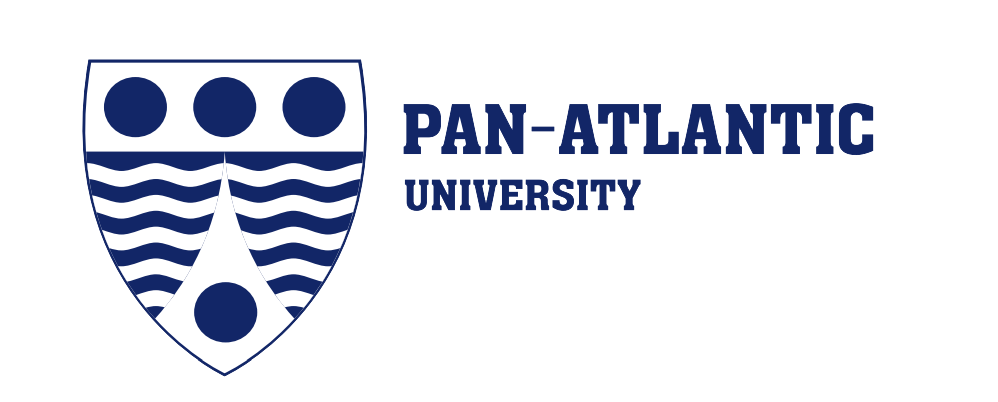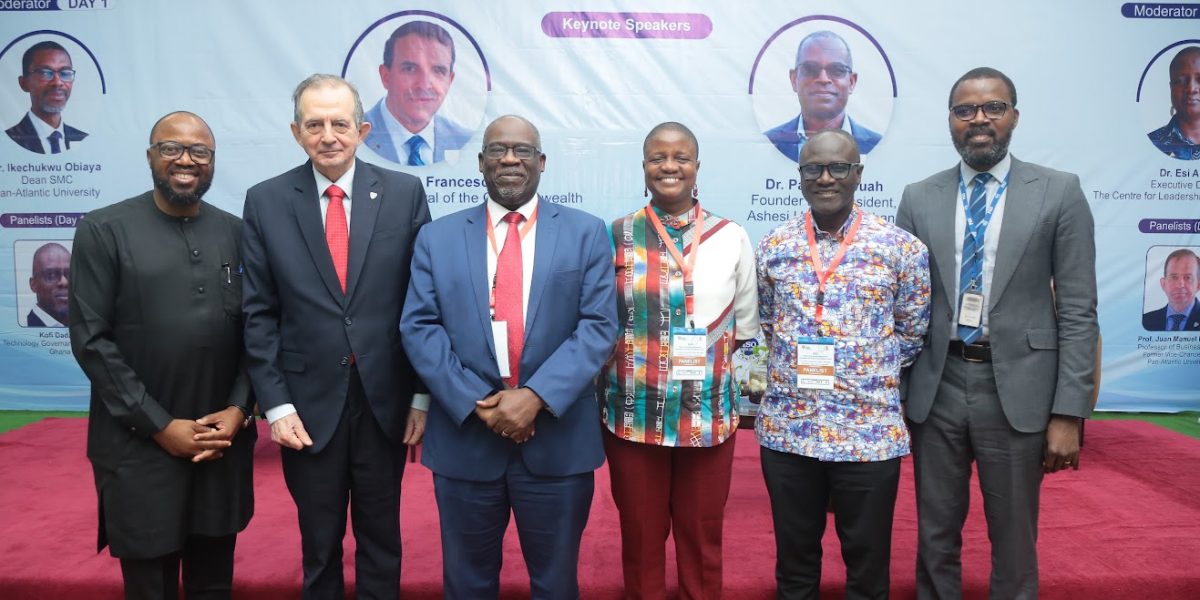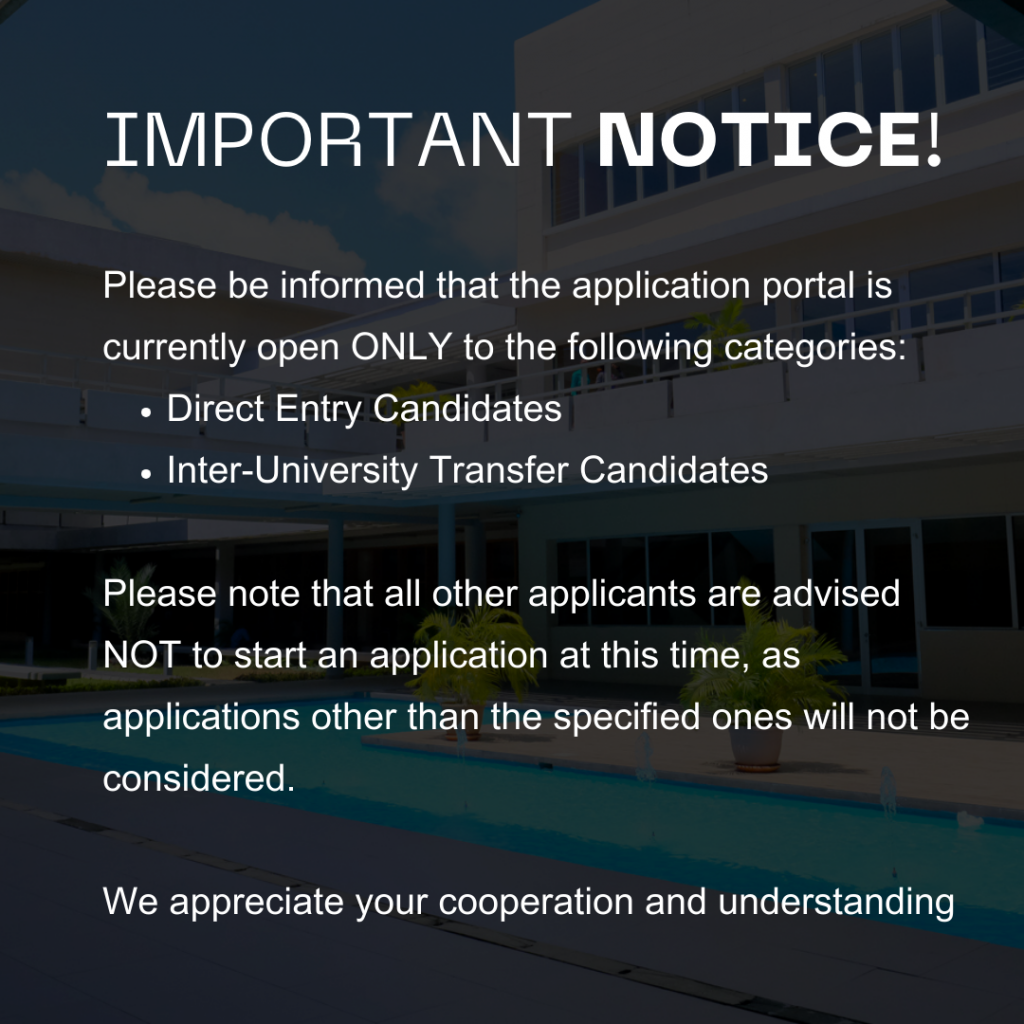Day two of the ongoing conference continued to build on the themes of governance, ethics and technology for Africa’s advancement. The day featured insightful remarks, a compelling keynote address, a collaborative plenary session, a book launch, and a dynamic panel discussion, all centered around fostering “human flourishing” across the continent.
The day commenced with opening remarks from Dr. Adaora Onaga, Director of the Institute of Humanities at Pan-Atlantic University, and Dr. Esi E. Ansah, Executive Director of the Centre for Leadership at Ashesi University. Dr. Ansah powerfully urged attendees for a mindset shift stating, “We can either complain all we want about Africa being left out, and Africa being left behind, or we change that by becoming content creators, rather than content consumers.”
The 2nd Keynote Address of the conference was delivered by Dr. Patrick G. Awuah Jnr., Founder & President of Ashesi University. His address focused on “Responsible Innovation for Sustainable Development and Human Flourishing in Africa.” Dr. Awuah provided a clear definition of flourishing, explaining, “In its simplest form, flourishing is about thriving, growth, success. It’s not only about individuals. It’s about communities and nations. It is about the well-being of people and the vitality of societies.

He emphasised the crucial role of leaders in shaping societal norms and the necessity of leadership grounded in integrity and empathy for fostering flourishing societies. “Responsible innovation is not just about creating new technology or new ideas,” Dr. Awuah stated, “It’s about ensuring that those innovations serve humanity, are grounded in ethical reasoning, and are sustainable in the long term.”
Drawing a comparison between Haiti and Singapore based on factors like per capita income, education, political stability, and safety, he underscored the impact of leadership and environment on societal progress. Dr. Awuah concluded by stressing the pivotal role of universities and educators in preparing the next generation of leaders to build environments conducive to responsible innovation and sustainable progress.

The Plenary Session centered on The Education Collaborative and was moderated by Rita Abla Dugbenu, Assistant Director of the West African hub. Panelists Rose Dodd, Executive Director of The Education Collaborative, and Dr. Peter Bamkole, Strategic Committee Chairman of the West Africa Hub, discussed the power of African institutions collaborating to enhance human capital and achieve “human flourishing” for young Africans by 2050. They highlighted the benefits of joining the collaborative and the commitments expected of its members.

A significant moment of the day was the book launch by Pan-Atlantic University Press. Dr Nwachukwu Egbunike, Director of the press, introduced “Natural Law & Human Dignity: A Multidisciplinary Perspective”, edited by Dr. Celestine Kezie, Dr. Adaora Onaga, and Prof. Juan Elegido. The book, a compilation of publications and research from past conferences, aims to serve as a vital reference for future research on human dignity and ethics.
The afternoon featured a compelling panel discussion on “Responsible and Human-Centred Innovation in Africa for Sustainable Development,” moderated by Dr. Esi Ansah. The panel included Prof. Juan Manuel Elegido, Mr. Romeo Bugyei, and Voke Oshevire, representing Mrs. Clare Omotseye.

The panelists unanimously agreed that innovation should prioritise people over technology. Mr. Bugyei advocated design thinking, emphasising the importance of understanding and addressing community needs first. Key themes discussed included financial inclusion, trust-building, cross-sector collaboration, and ethical data management. The panel also noted the emergence of a new generation of ethically minded entrepreneurs in Nigeria.
The overarching conclusion was that Africa’s sustainable progress hinges on integrating modern technology with local knowledge, ethical responsibility, and inclusive participation. Trust, collaboration, and context-aware design are crucial for developing technologies and systems that truly empower African people and drive lasting development.

The day concluded with participants engaging in breakout sessions to present their research papers on governance, ethics, and technology, further contributing to the rich discussions and collaborative spirit of the conference.



